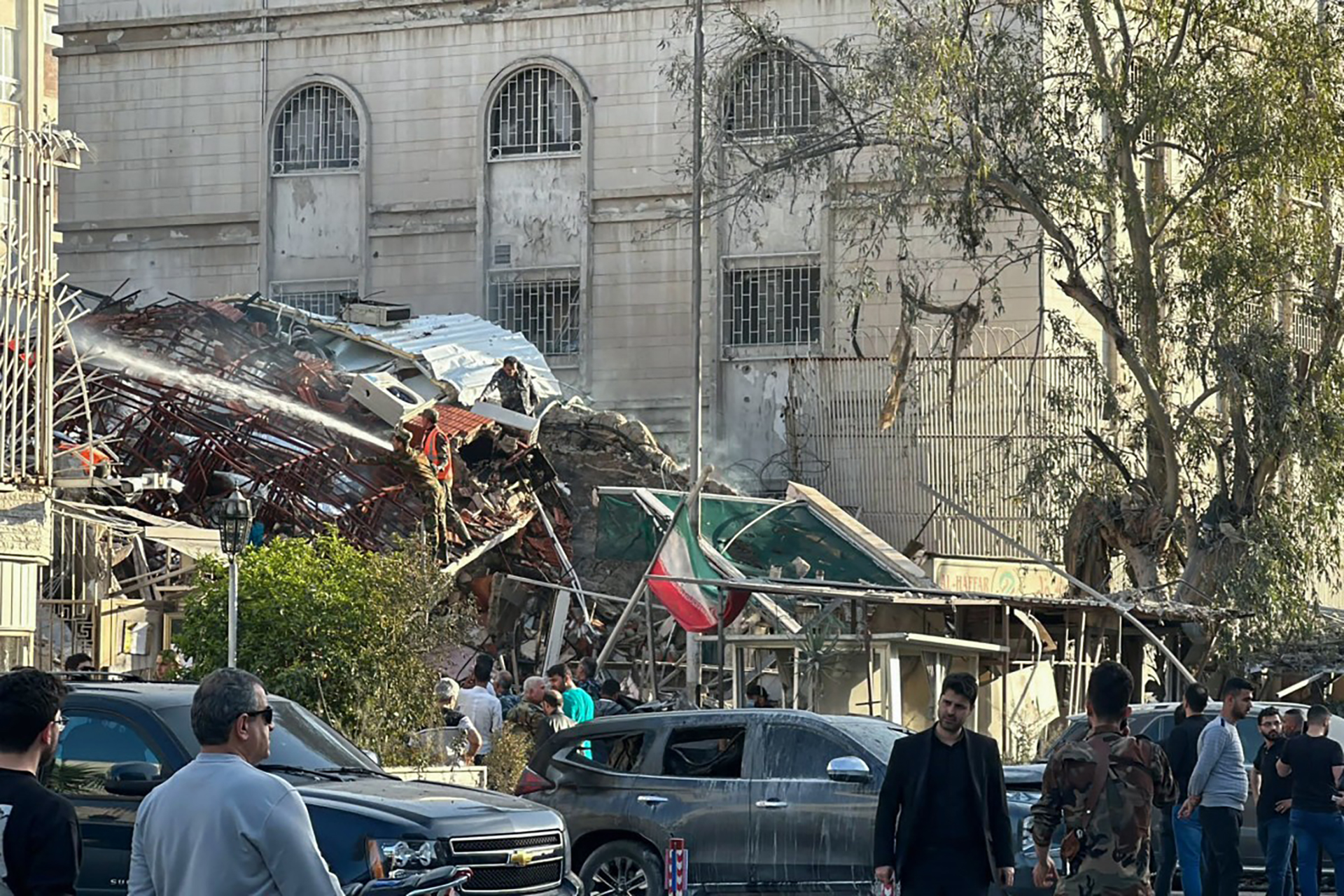Effects of the Israeli bombing near the Iranian consulate in Damascus (French)
The American Bloomberg Agency said that the shadow war between Israel and Iran has entered a new dangerous phase since the start of the war between the Israeli army and the Islamic Resistance Movement (Hamas) in the Gaza Strip on the seventh of last October.
She added that this shadow war has been shaping the Middle East for decades, highlighting that it is the most explosive among many other conflicts that have ravaged the region.
Read also
list of 4 itemslist 1 of 4
A doctor who worked in Gaza: This is a war on children!
list 2 of 4
The Guardian: Are Israel's allies really retreating from their support?
list 3 of 4
Economist: What will happen to humanity if a nuclear war breaks out?
list 4 of 4
New York Times: The United States has not yet discovered a way to defeat ISIS
end of list
The agency's senior editor for Middle East affairs, Ethan Brunner, explained - in his report - that the joining of other Iranian-backed armed groups into the raging fighting between Israel and Hamas, "which is also supported" by Tehran - as he put it - has entered the region into a new dangerous phase of the conflict.
Iranian official television reported yesterday, Monday, that an Israeli air strike targeted buildings belonging to the Iranian consulate in the Syrian capital, Damascus, killing a senior commander in the Iranian Revolutionary Guard and others.
Although Israel and Iran were previously allies during the rule of Shah Mohammad Reza Pahlavi, that situation changed after the success of the Islamic Revolution led by Ayatollah Khomeini in overthrowing the previous regime in 1979. Since then, the new leaders in Iran have adopted a strong anti-Israel stance, describing it as An imperial power, according to a Bloomberg article.
For its part, Israel considers Iran's ability to manufacture nuclear weapons a threat to its existence, which is why it is believed to be behind a sabotage campaign against Tehran's nuclear program.
Israeli officials have hinted more than once that Tel Aviv will use air power to strike Iran's nuclear program if Tehran is on the verge of producing nuclear weapons, as it did before when it destroyed the Iraqi nuclear reactor in 1981, and bombed what was suspected to be a Syrian nuclear reactor in 2007. .
Older front
Broner described Lebanon as the oldest front in the confrontation between Israel and Iran, saying that the Hezbollah group was formed following the Israeli invasion of the south of the country in 1982.
He claimed that the party had since become “somewhat of a proxy” for the Iranian Revolutionary Guard, and had repeatedly engaged in battles with Israel; Most notably in the 2006 war.
The writer reviewed some of the events that took place in the region that reflect the nature of the relationship between Hezbollah and Iran, especially during the civil war in Syria, where Tehran supported its ally, President Bashar al-Assad, and facilitated the transfer of weapons to Hezbollah in Lebanon via Iraq and Syria.
He said that there is another aspect of the shadow war between Israel and Iran, which is evident in the retaliatory attacks since 2019 on commercial ships related to each of them.
Although both sides deny responsibility for these attacks, it is widely believed that the two countries are behind them.
Another front
In an escalation of the shadow war, the Bloomberg article referred to the attempts of the Ansar Allah group (Houthis) in Yemen to strike Israel with missiles and drones, and to target what it believes are “ships belonging to or linked to Israel” in the Red Sea.
Although Iran has mostly absorbed Israeli strikes on its interests in Syria, in 2018 its forces there fired a barrage of missiles towards Israeli positions in the occupied Golan Heights. Israel, for its part, responded with a much greater show of force, Brunner said.
The confrontations - or the shadow war, as the author of the article calls it - did not stop there, but rather extended to Israel assassinating 5 Iranian nuclear scientists since 2010, and launching numerous attacks on nuclear facilities inside Iran, which it pledged to respond to.
Source: Bloomberg

